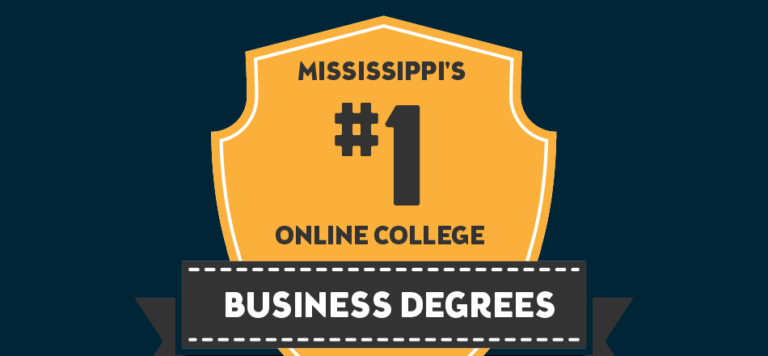Recognizing Signs of High IQ in Children: What Every Parent Should Know
Parents often wonder how to identify if their child has a high IQ. While every child develops at their own pace, certain traits can indicate advanced intellectual abilities. Early speech development, a keen curiosity, and an ability to solve problems creatively are common indicators. These children may also show an intense interest in specific topics and prefer complex tasks or puzzles that challenge their minds. Recognizing these early signs can help parents nurture their child’s unique potential.
In addition to early milestones, specific behavioral and emotional cues suggest high intellectual abilities. A gifted child may exhibit intense focus, advanced reasoning skills, and the ability to grasp abstract concepts. Furthermore, they may be susceptible to their environment or express empathy beyond their years. These signs of gifted child are essential for parents to understand, as early recognition allows for appropriate support and opportunities for growth.
Early Indicators of High Cognitive Abilities
As parents become familiar with their child’s personality and quirks, they might notice certain traits that stand out. Children with a high IQ might demonstrate an incredible memory, rapidly expanding vocabulary, or an intense ability to focus on complex tasks beyond their years. This isn’t just about being “smart” or scoring well on tests; it’s about the capacity to understand nuanced concepts and the hunger to learn more about them.
According to experts, children who quickly grasp intricate ideas or deeply immerse themselves in subjects of interest might display early signs of exceptional cognitive abilities. These insights are not merely academic; they affect how children perceive the world, solve problems, and interact with others. Recognizing these traits early allows parents to explore educational opportunities that push beyond the traditional curriculum, seeking environments where their child’s thirst for knowledge can be fully satisfied.
Furthermore, such insights can aid parents in selecting suitable learning experiences that cater to these burgeoning capabilities. Parents should consider programs that focus on cognitive skills development to finely tune what might already be an advanced sense of understanding.
The Power of Curiosity and Creativity
The foundation of intelligence doesn’t lie solely in logic and reasoning but is also deeply intertwined with curiosity and creativity. Children with high IQs often exhibit remarkable curiosity and creative approaches that set them apart. These children constantly ask questions—sometimes surprisingly philosophical or technically intricate—and show vivid imaginations, creating stories or solutions that leave adults astounded.
Curiosity and creativity are more than mere byproducts of an active mind; they are catalysts that foster more significant learning and development. Encouraging these traits is crucial for promoting cognitive growth. Parents can nurture these abilities by engaging their children in various activities, such as solving complex puzzles, indulging in creative arts, or exploring diverse fields of interest through books and experiments.
By offering an environment that supports exploration and creativity, parents can ensure their children excel and find joy in their achievements. Nurturing these abilities helps solidify a lifelong love for learning and discovery, which is invaluable, considering the fast-paced and ever-changing world children are being prepared to navigate.
Social and Emotional Considerations
Intelligence isn’t solely about academics; social and emotional facets are equally significant in understanding a child’s capabilities. Children known for their high IQ can often experience empathy and emotional processing at a level beyond their chronological age. This might lead to increased sensitivity or emotional intensity, where they perceive situations more deeply than their peers.
Engaging children’s emotional intelligence along with academics provides a balanced growth environment. Parents must nurture their children’s emotional faculties to equip them for real-world interactions and experiences. This might involve teaching them the nuance of different emotional responses or helping them learn self-regulation techniques.
Moreover, a structured emotional education can help gifted children develop healthy relationships with peers and adults. It encourages introspection and compassion, which are critical to successful development as intellectual achievements.
Adapting Education to Benefit Gifted Children
While designed to cater to a broad spectrum of learners, the traditional education system often fails to challenge gifted children appropriately. It is crucial to recognize when standard education might not suffice. Parents should explore adapting educational experiences to meet their child’s advanced learning needs. Fortunately, there are myriad options available beyond the typical classroom setting.
These options include alternative educational models, specialized programs, or enrichment activities that provide more challenging and stimulating environments. For example, school acceleration programs or ability grouping techniques can provide a supportive atmosphere that effectively nurtures high-IQ children. Tailoring these strategies ensures that learning aligns with the child’s intellectual capabilities.
In doing so, parents help their children realize their potential and prevent stagnation or disinterest in academia, which can occur when children are not fully engaged. This attention to detail signifies an active role in their education, which pays dividends as these children prepare for future learning environments or careers.
Communicating with Educators
Open communication with educators can significantly enhance the educational experience of high-IQ children. Collaborating on tailored learning plans that acknowledge and cater to the child’s unique talents and needs is essential. Educators equipped with insights from parents can strategize how best to provide an enriching educational landscape.
Sharing observations of a child’s strengths and areas for growth contributes to an effective educational strategy. Proactive discussions and shared goals between parents and teachers allow for a synergistic relationship that optimally supports the gifted child’s journey. Moreover, such collaborations can create innovative solutions to some gifted children’s challenges within traditional classroom settings.
This alliance is critical in ensuring every child receives the attention and resources they need to thrive academically and socially. By nurturing these communication channels, parents and educators can enable an environment synonymous with progress and achievement.
Conclusion and Parental Role
Parents play a crucial role in nurturing gifted children. They must be vigilant observers, ready to identify and encourage developments in their child’s intellectual and emotional faculties. Collaboration with educators showcases foresight and the desire to adapt learning experiences for optimal outcomes.
Guiding a gifted child isn’t solely about academic achievements but is about fostering an environment where they can express and refine their natural talents. By ensuring a balanced approach that includes strong support structures and emotional growth, parents can help craft supportive pathways that lead to fulfilling and meaningful lives.
Recognizing and supporting these unique gifts is a lifelong process, filled with rewarding milestones as these children become significant contributors to society.







